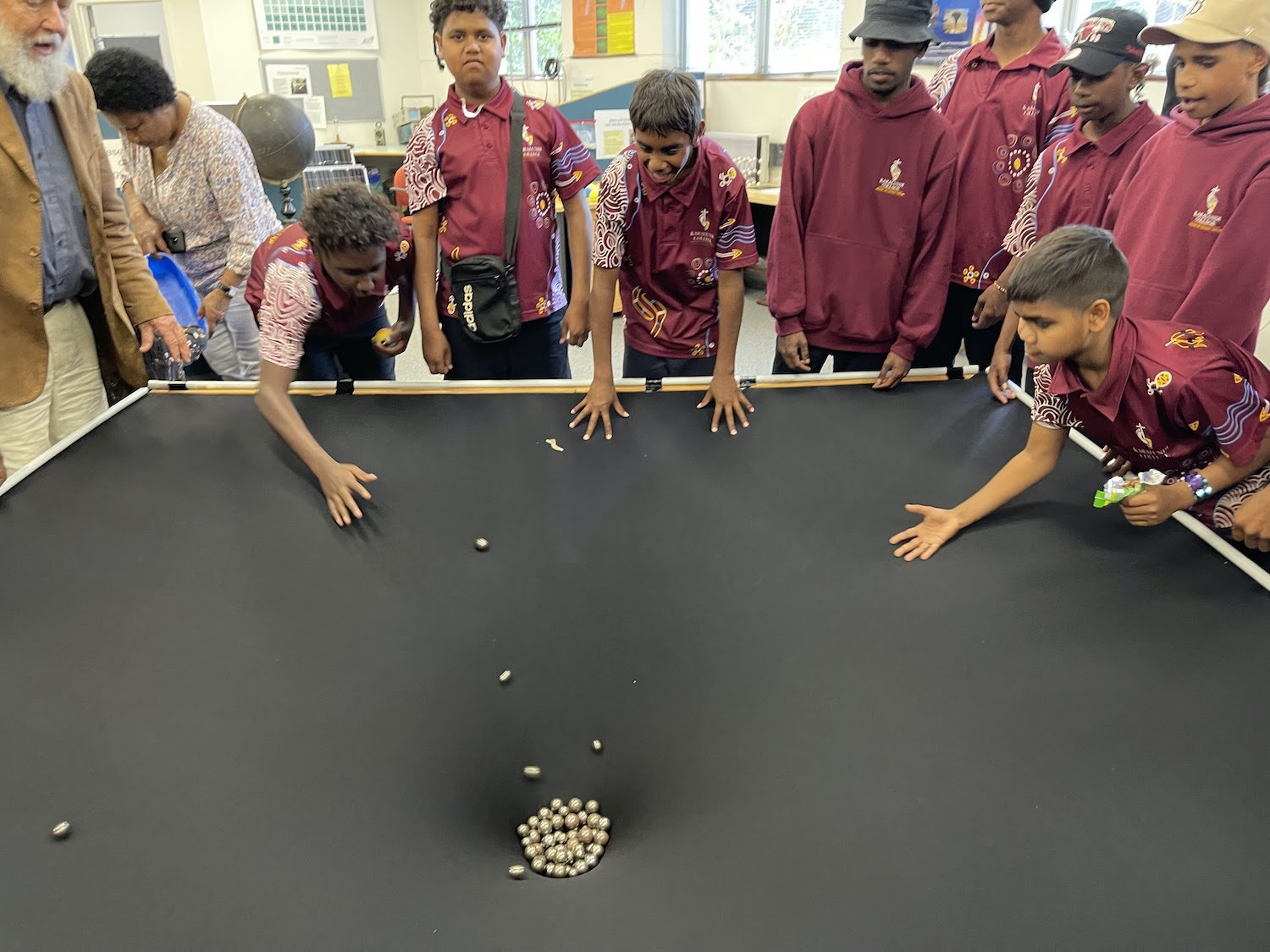UWA Wallal Expedition Centenary Exhibitions & Talks
UWA Wallal Expedition Centenary
20 September - 2 October 2022
In September 2022, The University of Western Australia is celebrating the centenary of the Wallal eclipse expedition, a heroic effort involving astronomers, filmmakers, aviators, physicists, mathematicians, computer scientists, and the Indigenous Nyungumarta people who welcomed the group to their land.
Instigated by UWA Professor Alexander Ross, the expedition proved Einstein’s theory of relativity, changed our understanding of space, time and gravity, and showcased Western Australia as a significant player in world science. This set the stage for Australian participation in recent discoveries of black holes and neutron stars crashing together and making the most powerful explosions that send gravitational waves echoing across the universe.
The expedition is a story of science, sailing ships, surf and donkeys, and innovative ideas that changed how we think. Hosted in the Undercroft of UWA’s iconic Winthrop Hall, scientists, a renowned WA artist, and educators have created an exhibition that takes you on a journey that starts in Wallal and finishes with the astonishing discoveries of black holes all over the universe.
The two-week centenary celebrations feature a range of events and activities, including:
Science, art, history exhibition with something for everyone and all ages, including:
The story of the Wallal expedition in words, pictures and a ten-minute movie
Drawing in Space and the Germ Series, an impressive exhibition of science-inspired sculptures by renowned WA artist Mark Grey-Smith
First chance to see the Royal Australian Mint’s Wallal Centenary commemorative coin
Discover black holes and the new science of gravitational wave astronomy
Snap a black hole selfie
Educational exhibition on teaching Einsteinian physics in Schools
Launch of Uncovering Einstein’s New Universe, a book by David Blair, Ron Burman and Paul Davies, including signed copies available for sale. Intended as a resource for school teachers, Uncovering Einstein’s New Universe complements the exhibition and is a must-read for anyone wanting to understand how Einstein’s new universe was uncovered!
Interactive activities for students to discover gravity and Einstein’s universe suited for all ages
Take a tour of a black hole in virtual reality
Free educational talks and workshops customised for students in school years 3 – 12 (registration is essential - see below for more information)
Public lectures (see below for more information)
Public Lectures: Revealing a New Universe
To commemorate the Wallal eclipse discovery that revolutionised our understanding of space, join us to hear from two of the world’s top scientists and powerhouses of physics.
Internationally renowned Regents' Professor Paul Davies AM, best-selling author and cosmologist, and Professor Tamara Davis AM, astrophysicist and TV presenter, will take you on a journey to the frontiers of knowledge. From the most profound questions about the universe to years of ground-breaking discoveries of black holes with gravitational wave detectors, our experts will have you enthralled, with every big question on the agenda. From school students to grandparents, these family-friendly lectures will expand your mind to powerful ideas of space and time and the meaning of existence. Bring your friends and your questions!
PUBLIC LECTURES:
What’s eating the universe? - Regents’ Professor Paul Davies AM
Discovering the universe in gravitational waves - Professor Tamara Davis AM
DATE: Thursday, 22 September 2022
TIME: 6 – 8pm (doors open at 5.30pm)
VENUE: Octagon Theatre
TICKETS: Adult $10 | Student/Concession $5
Einstein First program with Indigenous students at Karalundi College
In June 2022, the Einstein-First team received an opportunity to trial the program with Years 7 – 10 Indigenous students at Karalundi College which is a remote independent co-educational boarding school for Indigenous students. The team trialled various Einstein-First activities such as the spacetime simulator, atoms and molecules, and solar panels and we received a positive response from the students. The feedback was collected through a questionnaire and 90% of students agreed with the statements “Science with activities is fun”, “I like learning things with activities” and “I would like to have more programs like this one”.
Last week, the school visited, and the team again engaged the students with the spacetime simulator, laser, and maths activities. Students participated in activities with zeal. At the end of the program, Naomi Wheat from the Indigenous School discussed various pathways to study at the University of Western Australia.
Students orbiting steel balls around a central mass. The balls orbit the central mass due to the curvature of the membrane caused by the central mass


